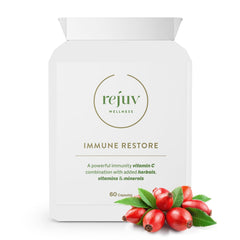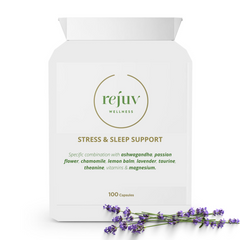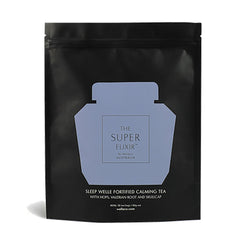Nothing worse than suffering from insomnia & sleep disorder! Dr Simone unpacks many of the causes and her 10 top tips to combat this problem.
How to beat insomnia & sleep disorder
Anyone who has ever had sleep problems or suffered from jet lag knows how debilitating poor sleep can be. Whether it is difficulty trying to fall asleep, broken sleep or waking up after a good length of sleep still feeling exhausted, all can negatively affect your quality of life. Since we spend about a third of our lives sleeping it is important that we get this right so that the time we spend awake is as joyful and satisfying as possible.
How insomnia & sleep disorder impacts your life
A study carried out by Dr Francesco Cappuccio and colleagues from the University of Warwick and University of Naples Medical School reported that subjects who regularly slept less than 6 hours a night had an increased risk of death by 12%.
Sleep was designed so we could detox and repair from the day we have just had. Sleep has a direct impact on our physical and emotional health. Even if you are super healthy you will still produce internal pollution, called free radicals, from the standard conversion of food into useable energy. It is like the natural phenomenon of burning a log of wood, even though heat is given off as the desired effect of smoke is still produced as a by-product.
For those of us who don’t live totally perfect lives and occasionally don’t drink enough water or drink too much coffee or miss the gym a little too often or give in to ordering take away on weekends then we will produce more free radicals than others. The smart way to live I feel is to always be looking for the balance of goodness in v’s toxins out. Look at your life and see what do you do to put money in your ‘health bank account’ and how naughty you are which takes money out of your ‘health bank account’.
The Science of Sleep, Insomnia & Sleep Disorder
Scientifically this equates to your free radical levels v’s your anti-oxidant levels. Sleep allows the body to restore a balance of power in favour of the anti-oxidants so you wake up each morning in the optimum balance. According to Traditional Chinese Medicine (TCM) the body has a 24-hour body energy clock so each organ also has its time of regeneration and receives vital energy. In western medicine, this is referred to as the body’s circadian rhythms. This is why when I have a patient who has broken sleep I ask them to try to make a note of the times they usually wake up in the night, for more often than not they will always wake up at the same time and this will usually relate to the organ at that time which is trying to regenerate.
For example, if you wake up between 1-3 am it is usually your liver and if it is between 3-5 am it is usually your lungs. This doesn’t mean you are heading for liver or lung failure it simply means that these organs need more attention and may require more nutrition to detox, repair or nourish them. These organs in TCM also relate to emotions will I will expand on later.
Research suggests that sleeping more when fighting infectious illness aids recovery in addition to helping you actually resist infection in the first place. White blood cells are produced during sleep and TNF (tumour necrosis factor) a cancer killer is also released as we sleep, having wonderful healing benefits for our immune system. Research has shown that people who stayed up passed 2-3 am had one-third fewer cells containing TNF the next day, and that the effectiveness of those remaining was greatly reduced.
Even though we may look like we are having a peaceful night’s sleep, our brains actually remain very active. A typical night’s sleep comprises five different sleep cycles, each lasting about 80-90 minutes. The first four stages of each cycle are regarded as quiet sleep or non-rapid eye movement (NREM). The final stage is denoted by rapid eye movement (REM). Even though we may change our sleep position 30-40 times per night our muscles remain relaxed so they have a chance to repair.
Our resting heart rate also drops to around 10 -15 beats per minute, which is usually around 60-80 bpm during the day. This allows the blood pressure to drop, arteries to vasodilate and blood flow to be increased to all areas of the body. Our blood is often referred to as the ‘river of life’ for if we give it the right nourishment the body is able to heal itself of anything.
10 top tips to improve your sleep
…if you are struggling with Insomnia & Sleep Disorder
1. Pay attention to what you eat and drink 2-3 hours before you go to bed
Loading up on caffeine, sugar or any high GI foods or drinks will stimulate the body and reduce sleep quality. Protein is the best before you sleep so if you need a snack choose protein-rich foods like organic / vegan yoghurt, hummus, nuts/seeds or a liquid snack is even better for it is easier to digest so choose a vegan protein powder such as Welleco Nourishing Protein (avoiding the nasty whey varieties for they will wreak havoc on your hormones at a time when they are meant to be re-balancing).
2. Do a ‘brain dump’ before you sleep
Any client of mine (and I included) who have had trouble sleeping, I get them to leave a notebook next to their bed. Draw a line down the middle & at the top of one side write ‘Things I can change’ and the top of the other side ‘Things I can’t change’. This is a wonderful exercise for often we spend hours lying awake at night marinating about things that are totally out of our control! Get busy with the things you can change & let the things you can’t change go & trust all will be fine, what do you have to lose?
3. Introduce sleep-enhancing herbs
Over the years, I have found that herbs like valerian, chamomile and hops work brilliantly to help re-set your body clock and help you sleep faster and stay asleep longer. I find these herbs in the form of a tea work best for it is warm and soothing too. Try our new Welleco Sleep Well tea and reach a new level of chill. For any patients with chronic insomnia please consult your MD.
4. Include physical activity into your daily routine
Regular physical activity can promote better sleep, helping you to fall asleep faster and to enjoy deeper sleep. Timing is important, though. If you exercise too close to bedtime, you might be too energized to fall asleep. Other people post-exercise feel exhausted and fall asleep quickly so work out what time of the day works best for you. If this seems to be an issue for you, exercise earlier in the day.
5. Try a nice warm (not hot) protein-enriched drink before bed
The tea will not only give you all the essential amino acids your body need to repair itself it will also calm you due to the tryptophan levels. This is best as always as a plant source like almond milk and add our Nourishing Protein powder to set you up for maximum repair and rejuvenation while you sleep, not to mention the tryptophan boost to improve sleep quality
6. Add melatonin
If you travel a lot and tend to battle with jet lag or suffer from everyday insomnia tendencies melatonin is great to help induce a state of relaxation which brings about sleep and helps keep you asleep if you tend to wake up. Since melatonin is not addictive or a drug you can take 3mg before bed and another 3mg if you wake up. You will always know when you have had too much melatonin for you will wake up feeling groggy.
7. Get the temperature & mood right
A room too hot or too cold will affect your quality of sleep so take a little time to make sure the temperature of your bedroom is right for you. Also, you can use organic lavender pillow sprays to help induce sleep.
8. Limit day time siestas
As tired as you may be during the day due to poor sleep try to limit day time naps for research shows this will make your insomnia worse and you don’t get the same physiological health benefits when you sleep in the day anyway.
9. Get comfortable
This sounds obvious but you would be surprised how many people are sleeping on the wrong mattresses and pillows. My husband who specialises in backs and necks always tells his patients you must spend money on a good mattress/pillow and shoes! Everyone’s spinal curvature is unique and this affects you from the base of your skull right down to your tailbone so investigate this for simply the bed you sleep on has a massive impact on your sleep quality and therefore on your entire health and wellbeing.
10. If you do have broken sleep, check your TCM Energetic Body Clock
Reduce your stress
Being mindful to stay in today and out of yesterday or tomorrow. Overthinking, worry and stress will leave you in fight or flight mode and make it hard to tune out and have a good restful sleep. You can get helpful hints in this Mindfulness, Stress & Happiness blog if you are struggling with this.









